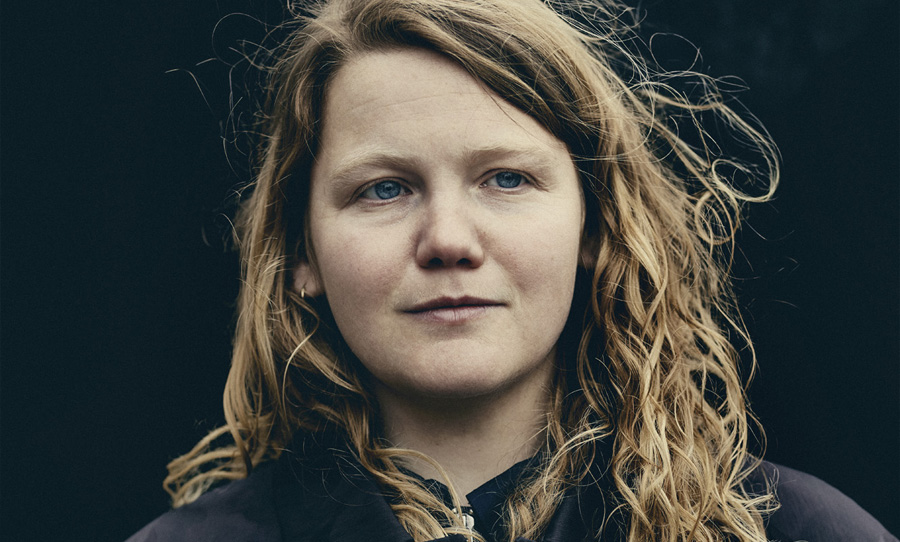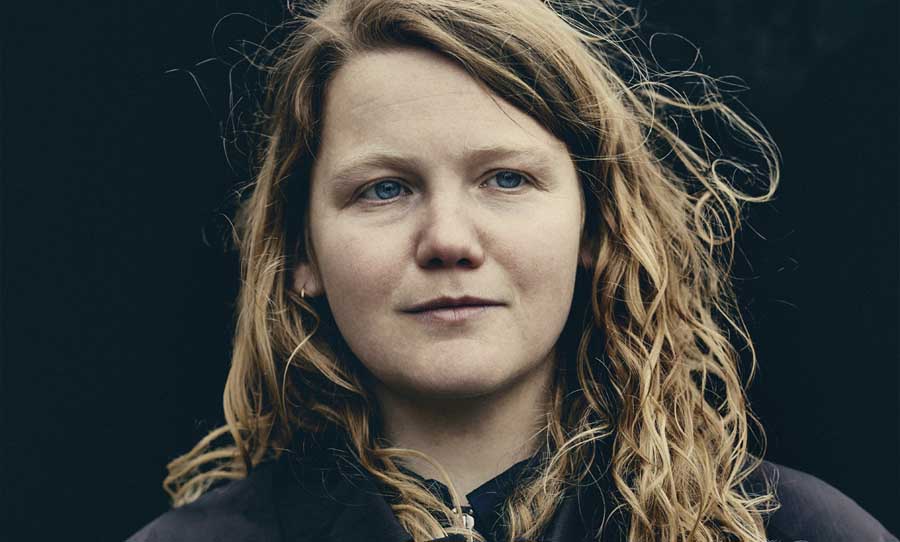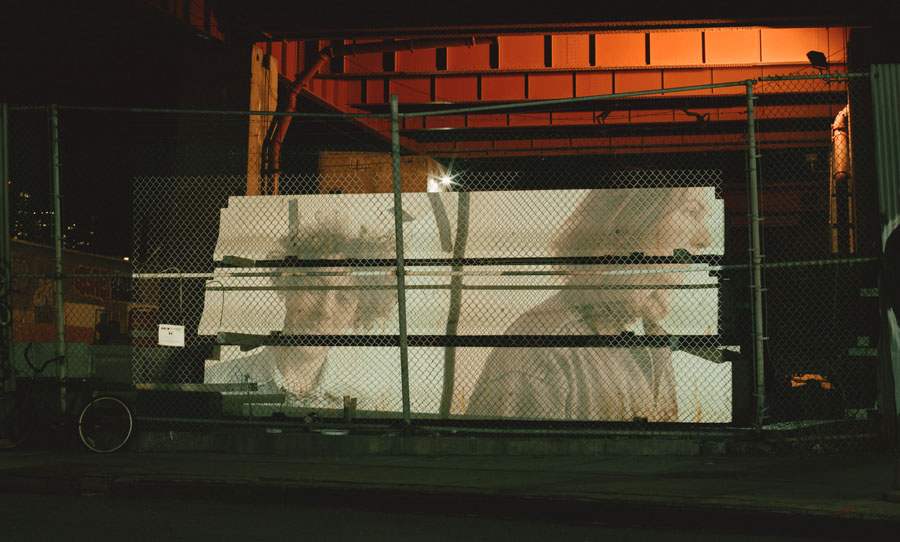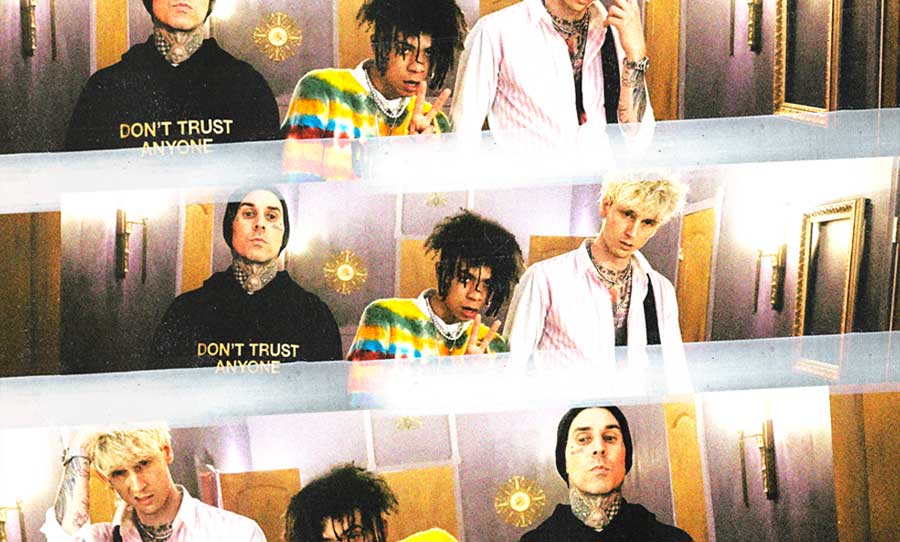The first time I listened to Kate Tempest, I was blown away by a force few artists can conjure. The British poet, playwright, and musician has a latent talent for distilling larger than life issues into simple and often devastating verses. When laid to a beat and music, it feels as if she could move mountains.
Her new album, The Book Of Traps And Lessons, is a quieter record than Tempest has ever released, though no less precise than her previous wordplay. With the LP hitting shelves today, we caught up with the artist to find out how it came together.

Kate Tempest discusses writing habits, leaving convention in the rearview mirror, and her new album The Book Of Traps And Lessons.
HAPPY: I listened to the album today and really loved it – is there a central vision that you had, walking into this record?
KATE: Yeah, I mean the guiding principle was the form, we were trying to find a new way of making music that broke all the conventions we had grown accustomed to over the last two years. It was this guiding principle of setting the lyric free and trying to go at the pace of the words, rather than have the words going at the pace of the beat. And then my narrative vision was something that emerged, I had to really try and understand what these songs were saying. And now as a finished piece, I have a very clear idea thematically of what’s happening in the record, but it’s much less of a successive narrative and more open.
HAPPY: I felt that, I also felt the album was quite divided. Did you have this idea of phases in the album in your head at all?
KATE: Well I think of it as one thing, one piece. I recorded it in one take, we learned it, memorised it, then went into the studio and recorded it in one take. In my head it’s definitely one piece but there are movements within it that introduce one theme… I suppose for me there’s a divide between what we could call The Book of Traps and then the The Book of Lessons, which happens after All Humans Too Late which is a poem about halfway through. Which would happen at the end of side A, before you flip the vinyl.
HAPPY: Right at the end, the last three songs felt like this rousing, ‘wake up and do something’ moment that was quite uplifting. Do you find you write things in the order they come together, or do you work it out once it’s on the page?
KATE: No, this album we didn’t write chronologically, and even the last album that had a really tight narrative structure, even those albums weren’t written in the order you hear them. What happens is as you start to generate the idea, you realise ‘well we don’t need any of this stuff here’, or ‘we can leave all this’, or that you need something at the beginning to introduce a character or introduce the mood, or actually there’s a point halfway where we can switch the mood. It’s a really creative process and when it’s finished it all makes sense, but all the way through it’s as much of a mystery for us as it is to anyone else.
HAPPY: I like that, you’re discovering it as much as we are.
KATE: Yeah.
HAPPY: You mentioned trying to break away from your previous stuff and I did notice a big move away from electronic and synthesised sound into things that were more real, like strings or piano. Was there an intention behind that choice?
KATE: We were trying to break convention… we were under the guidance of Rick Rubin, and he responded best to the music that was the least conventional. He was more interested in these sparse piano loops, and the beats that he was into were much more minimal. Rick was just all about pushing the lyrics to the front, that was his main concern. Dan Carey and I were both happy to just experiment, but it was quite a difficult process, stripping everything back like that. But I think Dan has really outdone himself, because I haven’t heard him write strings before and they were… fucking beautiful, really. I think the retain the kind of really sinister edge that Dan Carey is, but they have this raw, shocking beauty which I’m really proud of.
HAPPY: Are live shows a consideration when making a change like that? It’s quite a large change in… energy, I guess.
KATE: (Laughs) We’ve played some festivals, we’ve designed this new setup for playing which is just me and one other, Claire Uchima, we’ve worked it out so she can trigger all the parts and play the loops and play the whole album on three synths. But we played these festivals, like European festivals… we’ve worked out a set that incorporates old material but also a fair bit of material from the new album which isn’t out yet, so it’s quite demanding to expect an audience to listen to music they’ve never heard before. I think we’ve found a way of getting it right.
One day we came off the stage in Germany somewhere, or France, I can’t remember, and the promoter came and said “wow, last time I saw you guys, you were kind of a drum and bass band.” And now I’m doing this! But he was into it, the whole audience were into it, people were crying and dancing and shit, but last time he saw us there were like six of us on stage going mental, my drummer was just having a drum and bass day. That’s what we’ve been up to, but I will say I think people still respect the artistic intention behind what we’re doing, and I never really tried to be a kind of party starting MC, that was never really what was going on. I feel like it’s going to be something that people are really into, this new set, because it has some of those heavier beats and elements, but you can hear the words this time. I think for Kate Tempest fans, that’s quite important.
HAPPY: Agreed. I heard that years ago you had this crazy experience performing when you blacked out and couldn’t remember what happened to you on stage. Has that happened to you since?
KATE: No, it only happened then, it that time of my life. But I was in a mad time of my life, I was not grounded, so I think it was a safety mechanism. It hasn’t really happened again, thank god.
HAPPY: I’ve read something similar from Florence Welch, but it was the opposite end of the spectrum for her. Losing oneself was something to strive for, even if it was uncomfortable. It’s part of the performance for her.
KATE: Hmm. I think that’s a slightly different thing, going out with yourself is what it’s all about, one hundred percent, but this thing that happened, it wasn’t like that. It was like, I don’t know what happened. It was mental. I don’t know how to describe it, it was like drugs or not being in this world anymore. But at the same time, having sixty minutes of black and a set to do, being there but not being in your body. It was fucking crazy, man! It wasn’t like the feeling of leaving yourself behind in a great performance which feels amazing, and great and cool. You know when you’re jamming and something happens and you get right into the words, it wasn’t like that. It was something scary.
HAPPY: I want to finish off with a question I’ve asked a few times, but I like because always get a different answer. Do you have any writing rituals? Like a pen that you can’t let go of, or a place you normally settle to finish off a piece.
KATE: I guess I have many different writing rituals, it depends on what it is that I’m working on. And it depends when I have to get it finished. I like to write first drafts and lyrics on paper, I don’t like to write first drafts on a screen. I like to write in the studio, that’s a really core thing, when I’m in the studio with Dan Carey and he’s sort of pottering around and making sounds, I just start to write pages and pages and pages of lyrics. I don’t know what to say, sometimes when I’m writing dialogue for a play then I have to get myself into it by banishing all other lyrical content from my mind, I have to go through a process of getting rid of all the stuff in my brain.
HAPPY: Great, thanks so much for the interview.
KATE: Take care.
Kate Tempest’s new album The Book Of Traps And Lessons is out now via Fiction Records/Caroline Australia.



